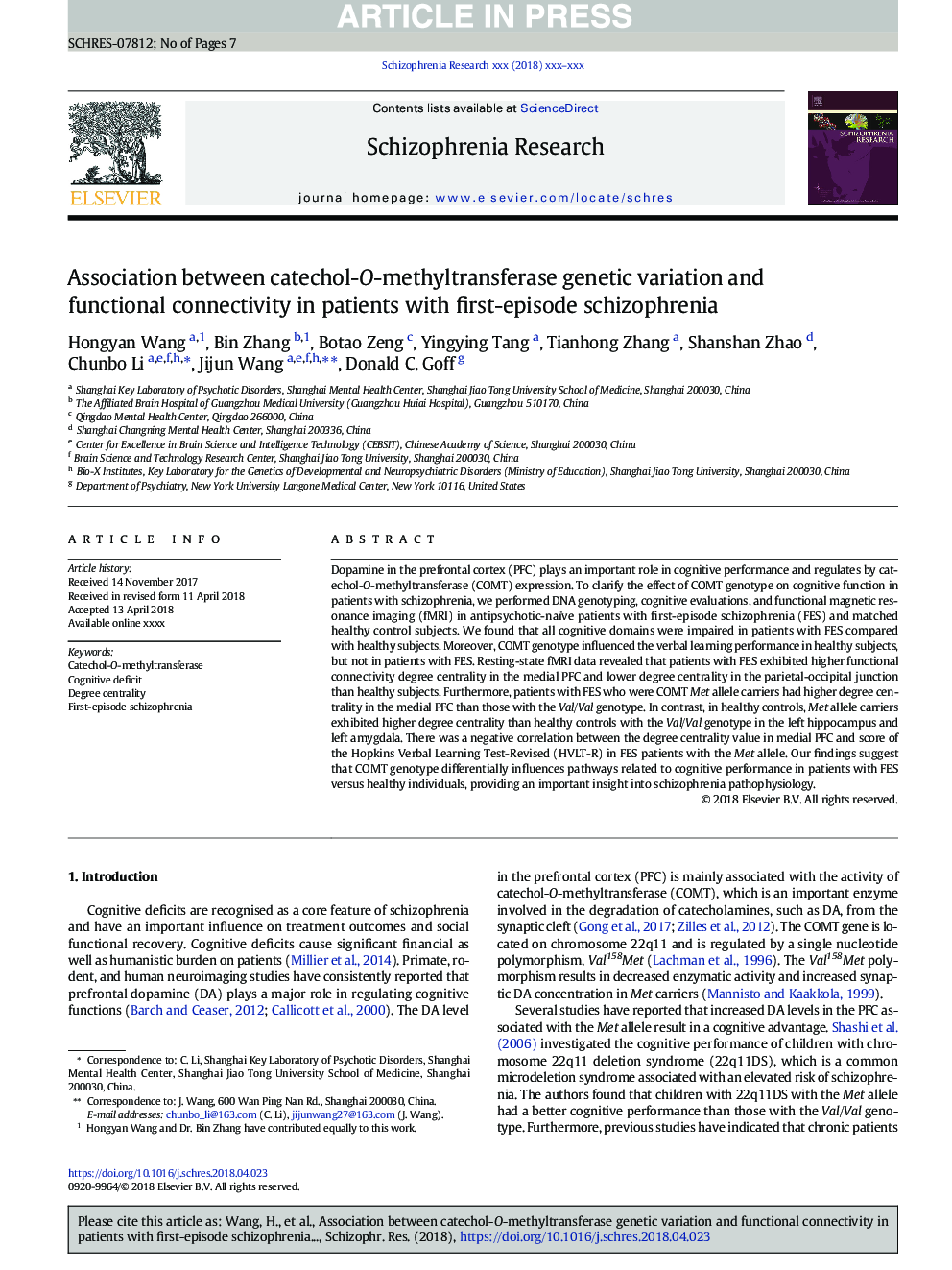| Article ID | Journal | Published Year | Pages | File Type |
|---|---|---|---|---|
| 10225563 | Schizophrenia Research | 2018 | 7 Pages |
Abstract
Dopamine in the prefrontal cortex (PFC) plays an important role in cognitive performance and regulates by catechol-O-methyltransferase (COMT) expression. To clarify the effect of COMT genotype on cognitive function in patients with schizophrenia, we performed DNA genotyping, cognitive evaluations, and functional magnetic resonance imaging (fMRI) in antipsychotic-naïve patients with first-episode schizophrenia (FES) and matched healthy control subjects. We found that all cognitive domains were impaired in patients with FES compared with healthy subjects. Moreover, COMT genotype influenced the verbal learning performance in healthy subjects, but not in patients with FES. Resting-state fMRI data revealed that patients with FES exhibited higher functional connectivity degree centrality in the medial PFC and lower degree centrality in the parietal-occipital junction than healthy subjects. Furthermore, patients with FES who were COMT Met allele carriers had higher degree centrality in the medial PFC than those with the Val/Val genotype. In contrast, in healthy controls, Met allele carriers exhibited higher degree centrality than healthy controls with the Val/Val genotype in the left hippocampus and left amygdala. There was a negative correlation between the degree centrality value in medial PFC and score of the Hopkins Verbal Learning Test-Revised (HVLT-R) in FES patients with the Met allele. Our findings suggest that COMT genotype differentially influences pathways related to cognitive performance in patients with FES versus healthy individuals, providing an important insight into schizophrenia pathophysiology.
Related Topics
Life Sciences
Neuroscience
Behavioral Neuroscience
Authors
Hongyan Wang, Bin Zhang, Botao Zeng, Yingying Tang, Tianhong Zhang, Shanshan Zhao, Chunbo Li, Jijun Wang, Donald C. Goff,
